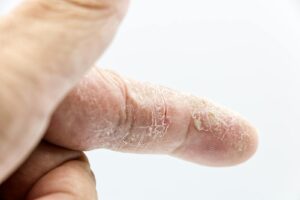Understanding Hard Water: Effects on Hair and How It Affects Your Hair
In the quest for healthy hair and skin, many people overlook a crucial factor: the water they use. Hard water, commonly found in various regions, can significantly impact your hair and scalp health. This article aims to explore what hard water is, how it forms, and the differences between hard and soft water. By understanding these concepts, you can make informed decisions about your hair care routine, ensuring that your hair remains vibrant and free from hard water damage.
What is Hard Water?
Hard water is defined by its high mineral content, primarily calcium and magnesium, which contribute to various water problems. These minerals can accumulate not just in pipes but also on hair and skin, leading to noticeable effects. The quality of your water can directly affect the condition of your hair and scalp, causing issues such as hair breakage and dry hair. If you’re wondering whether your water may be hard, a simple water test can help determine its mineral levels and guide you in choosing appropriate hair products.
Definition and Composition
Hard water contains a significant concentration of minerals, particularly calcium and magnesium. These minerals are absorbed from the soil and rock as water travels through pipes and city water systems. Over time, hard water can build up on hair strands, leading to damaged hair and dryness. In contrast, soft water has fewer minerals, making it gentler on both skin and hair. Recognizing the composition of your water is essential for understanding how hard water affects your hair and skin health.
How Hard Water Forms
Hard water forms when rainwater, which is typically soft, interacts with minerals in the ground. As it flows through the soil and rock, it picks up calcium and magnesium ions, resulting in elevated hardness levels. This process can lead to various water issues, especially in urban areas where city water is treated but still contains significant mineral content. Understanding how hard water develops can help you identify its presence in your hair care routine and take necessary steps to mitigate its effects.
Hard Water vs Soft Water
The primary distinction between hard water and soft water lies in mineral content. Hard water, with its high levels of minerals, can create problems such as hair damage and scalp irritation. In contrast, soft water is easier on hair and skin, leading to healthier hair growth and less dryness. Using a water softener can help alleviate the effects of hard water on hair, allowing for a more effective hair care routine. When comparing hard water vs soft water, it’s clear that soft water is preferable for maintaining optimal hair and scalp health.
Effects of Hard Water on Hair and Skin

Photo by Srattha Nualsate on Pexels
The effects of hard water on hair and skin can be profound and often underestimated. When exposed to hard water, hair may become brittle and prone to breakage due to the buildup of minerals in hard water. This accumulation can weigh hair down, leading to a lack of volume and causing it to appear dull and lifeless. Additionally, hard water can strip the natural oils from your scalp, resulting in dry hair and potential scalp irritation. Understanding how hard water affects your hair and skin is crucial for maintaining a healthy appearance and can guide you in choosing suitable hair care products.
How Hard Water Affects Your Hair
Hard water impacts your hair in several detrimental ways. First, the high levels of calcium and magnesium found in hard water can create a film over hair strands, making it difficult for shampoos and conditioners to penetrate effectively. As a result, your hair may not receive the moisture it needs, leading to dryness and hair damage. Furthermore, the minerals in hard water can cause hair products to build up, leading to an increase in hair loss and scalp issues. If you’re struggling with damaged hair, it may be time to consider the quality of water you use to wash your hair.
Signs of Hard Water Damage
Recognizing the signs of hard water damage is essential for addressing the issues it causes. Common indicators include dullness, dryness, and increased hair breakage. You may also notice that your hair feels rough or tangled after washing, which often points to mineral buildup. Another sign of hard water’s impact is the presence of flaky or itchy scalp, as the minerals can irritate the skin. If you experience these symptoms, performing a water test can help determine if hard water is the culprit behind your hair woes, allowing you to take corrective measures.
Impact on Skin Health
The impact of hard water on skin health can be equally concerning. Just as hard water can lead to damaged hair, it can also cause dryness and irritation for your skin. The minerals in hard water can strip away natural oils, leading to a compromised skin barrier that may exacerbate conditions like eczema and psoriasis. Furthermore, hard water can hinder the effectiveness of soaps and body washes, leaving a residue that clogs pores and contributes to breakouts. Switching to soft water or using a water softener can significantly improve your skin’s hydration and overall appearance, fostering a healthier skin and hair relationship.
Understanding Water Effects on Hair

Photo by Antonio Araujo on Unsplash
Water’s Role in Hair Health
Water plays a pivotal role in maintaining hair health, affecting both the external appearance and the internal structure of hair strands. Soft water, with its low mineral content, allows shampoos and conditioners to work effectively, ensuring that moisture is absorbed into the hair. In contrast, hard water contains high levels of calcium and magnesium, which can lead to hair damage by creating a film over the hair. This barrier prevents hair products from penetrating, resulting in dry hair and increased hair breakage. Regularly washing your hair with hard water may also strip away natural oils, further compromising hair health. Therefore, understanding the quality of your water is essential for promoting healthy hair growth and maintaining vibrant hair.
Comparing Hard Water and Soft Water Effects
When comparing the effects of hard water and soft water on hair, the differences are striking. Hard water is notorious for causing hair damage, leading to issues such as hair loss and dullness. The minerals in hard water can accumulate on hair strands, making them feel rough and tangled. This buildup can exacerbate problems, making it difficult to achieve the desired results with hair products. On the other hand, soft water enhances the effectiveness of hair care routines, allowing for better hydration and smoother hair. Ultimately, those who regularly use soft water often experience shinier, healthier hair without the adverse effects of hard water, illustrating the significant impact that water quality can have on your hair.
Common Misconceptions about Water and Hair
Numerous misconceptions surround the relationship between water and hair health. One common belief is that all water is good for hair, but this is not true; hard water can be particularly detrimental. People often assume that simply using more hair products will counteract the effects of hard water, but this can lead to further buildup and hair damage. Another misconception is that everyone should avoid washing their hair with city water, but the solution lies in understanding water quality and utilizing a water softener if needed. By recognizing these misconceptions, individuals can take proactive steps to protect their hair and ensure they are using the best practices for hair care in conjunction with the right type of water.
Preventing Hard Water Hair Damage

Photo by Vitalii Khodzinskyi on Unsplash
Water Treatment Solutions
To combat the damaging effects of hard water on your hair, implementing effective water treatment solutions is essential. One of the most popular methods is using a water softener, which helps to reduce the minerals in hard water, particularly calcium and magnesium. By softening the water, you can significantly decrease the impact of hard water on your hair and skin. Additionally, consider investing in a shower filter that specifically targets the removal of these minerals. Regularly testing your water quality can also provide insights into the hardness levels, allowing you to tailor your hair care routine accordingly. These water treatment solutions can ultimately enhance your hair’s health and vitality, reducing dryness and hair breakage.
Protect Your Hair: Tips and Tricks
Protecting your hair from the adverse effects of hard water involves adopting specific tips and tricks that can make a significant difference. First, consider using chelating shampoos designed to remove mineral buildup from hard water. These shampoos work by binding to the minerals in hard water, allowing for easier removal during washing. Additionally, incorporating deep conditioning treatments into your hair care regimen can help restore moisture and combat dryness. Limiting the use of heat styling tools can also prevent further damage to your hair, especially if it has already been affected by hard water. Lastly, always rinse your hair with filtered or distilled water when possible, as this can help mitigate the effects of hard water on your hair and scalp.
Long-term Strategies for Managing Hard Water
Long-term strategies for managing hard water’s effects on your hair involve a holistic approach to hair care and maintenance. Start by regularly testing your water to understand its hardness levels and identify any water problems that may arise. Implementing a consistent hair care routine that includes moisturizing products can help offset the drying effects of hard water. Additionally, consider using a vinegar rinse after washing your hair; this can help to break down mineral deposits and leave your hair looking shinier and healthier. Lastly, educating yourself on the differences between hard water and soft water will empower you to make better decisions regarding your hair care products and practices. By actively managing hard water’s impact, you can support healthy hair growth and maintain vibrant, luscious locks.
What is hard water and how does it differ from soft water?
Hard water is water that contains a high concentration of dissolved minerals, primarily calcium and magnesium. These minerals are often the result of water passing through limestone and other mineral-rich geological formations. In contrast, soft water has been treated to remove most of these minerals, making it less harsh on both hair and skin. Understanding the difference is crucial because the effects of hard water can significantly impact your hair care routine and overall hair health.
How does hard water affect my hair?
The effects of hard water on hair can be quite damaging. When you wash your hair with hard water, the minerals can build up on the hair strands, leading to a variety of issues. This buildup can make your hair feel rough, look dull, and even contribute to hair loss over time. The minerals can also interfere with the effectiveness of hair products, preventing them from nourishing your hair properly.
What are the signs that my water is hard?
There are several signs of hard water that you can look for in your home. One of the most common indicators is the presence of soap scum or a film on your shower walls and fixtures. Additionally, if you notice that your hair feels dry, brittle, or lacks shine after washing, it could be a sign that you are using hard water. Other signs include a white residue on your dishes after washing or frequent scaling in your appliances.
Can hard water cause hair damage?
Yes, hard water can lead to significant hair damage. The minerals in hard water can make it challenging for your hair to retain moisture, resulting in dry hair and increased hair breakage. Over time, this can weaken the hair strands and lead to split ends and overall unhealthy hair. If you notice your hair becoming increasingly unmanageable, it may be time to consider the quality of your water.


